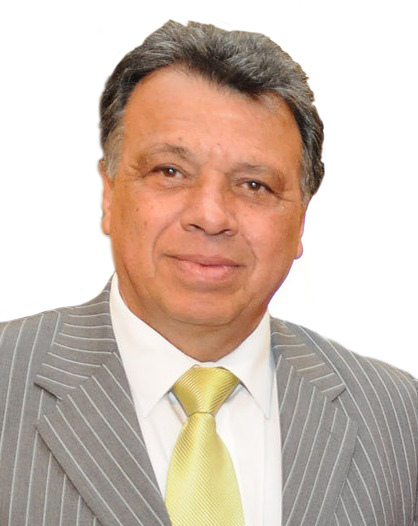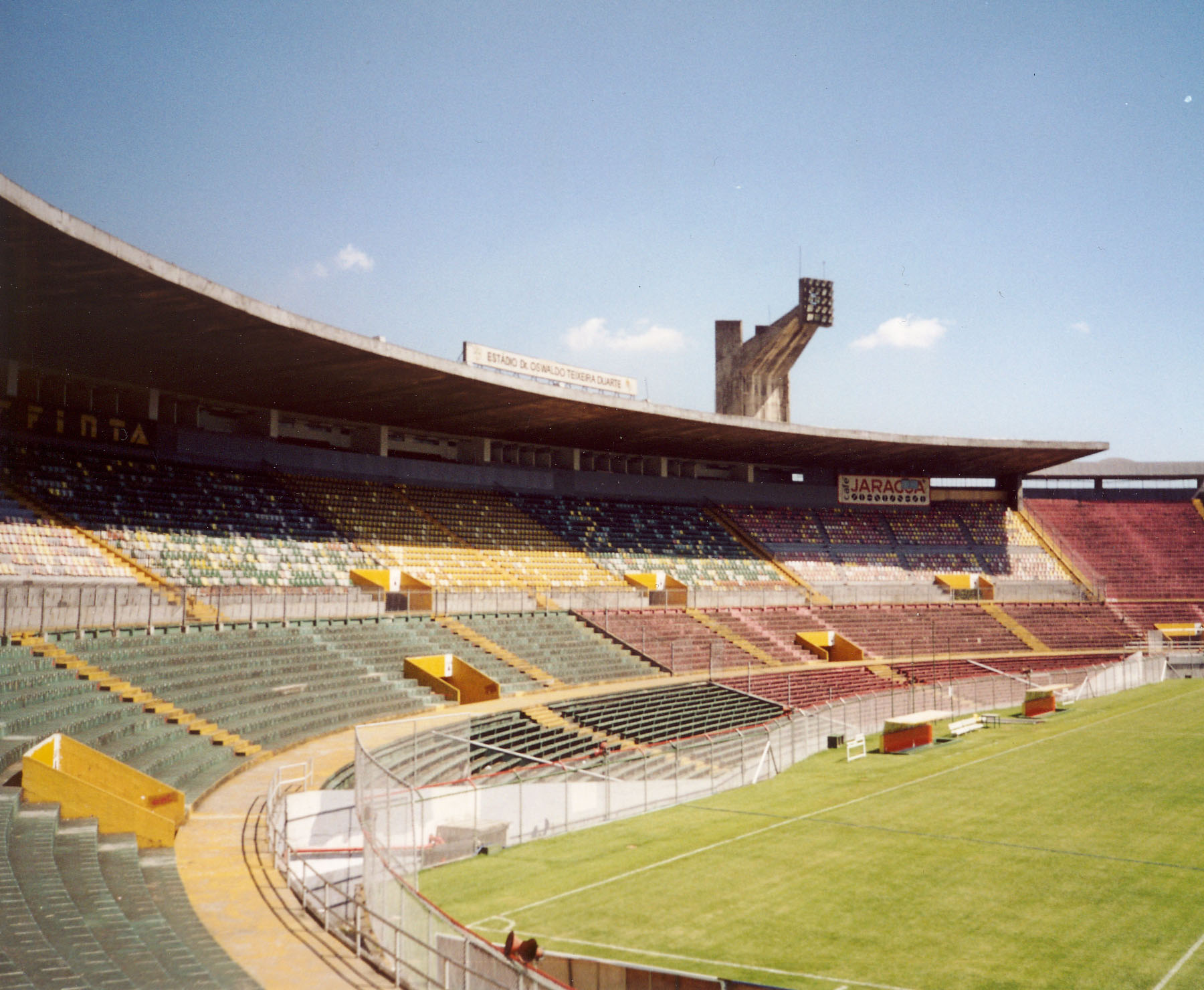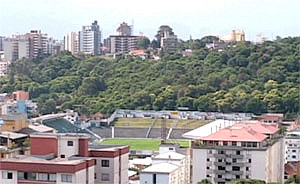|
Clemer
Clemer Melo da Silva or simply Clemer (born October 20, 1968), is a Brazilian retired footballer who played as goalkeeper and current manager. Career On March 4, 1997, he scored his first goal, in a Copa do Brasil match between his club, Portuguesa, and Kaburé. On May 4, 2008 he scored his first goal for Internacional in a penalty kick in the final match of Campeonato Gaúcho against Juventude. On January 4, 2010, Internacional announced Clemer as newest Goalkeeping Coach. After he served as coach of the club and driving temporarily the main cast, until its output on May 8, 2015. after fallen out again with the coacher of U-23. in October of the same year, has signed with commanded Glória in season 2016. List of goals scored Following, is the list with the goals scored by Clemer: Honours Player ;Remo *Campeonato Paraense: 1994, 1995 ;Goiás * Campeonato Goiano: 1996 ;Flamengo * Campeonato Carioca: 1999, 2000, 2001 * Copa Mercosur: 1999 * Taça Rio: 2000 * Taça Gu ... [...More Info...] [...Related Items...] OR: [Wikipedia] [Google] [Baidu] |
Sport Club Internacional
Sport Club Internacional (), commonly known as Internacional or simply Inter, is a Brazilian professional Association football, football club based in Porto Alegre. They play in the Campeonato Brasileiro Série A, Série A, the first division of the Brazilian football league system, Brazilian league, as well as in Campeonato Gaúcho, Campeonato Gaúcho Série A, the first level of the State football leagues in Brazil, Rio Grande do Sul state football league. The team's home stadium, known as Estádio Beira-Rio ("Riverside"), was one of the twelve 2014 FIFA World Cup venues and has a capacity of 51,300. The club was founded in 1909 by the Poppe brothers, with the clear goal of being a democratic institution without prejudice. Its colors are red and white and its fans are known as Colorados. It is one of the most successful clubs in Brazil and the Americas, being the third club with the most international titles in Brazil, with seven trophies. Its historical rival is Grêmio Fo ... [...More Info...] [...Related Items...] OR: [Wikipedia] [Google] [Baidu] |
São Luís, Maranhão
São Luís (, ''Saint Louis'') is the capital and largest city of the Brazilian state of Maranhão. The city is located on São Luís Island, Upaon-açu Island (Big Island, in Tupi language, Tupi Language) or São Luís island, Ilha de São Luís (''Saint Louis' Island''), in the Baía de São Marcos (''Saint Mark's Bay''), an extension of the Atlantic Ocean which forms the estuary of Pindaré River, Pindaré, Mearim River, Mearim, Itapecuru River, Itapecuru and other rivers. Its coordinates are 2.53° south, 44.30° west. São Luís has the second largest maritime extension within Brazilian states. Its maritime extension is 640 km (397 miles). The city proper has a population of some 1,108,975 people (2020 Brazilian Institute of Geography and Statistics, IBGE estimate). The metropolitan area totals 1,605,305, ranked as the List of largest cities in Brazil, 15th largest in Brazil. São Luís, created originally as ''Saint-Louis-de-Maragnan'', is the only Brazilian state capit ... [...More Info...] [...Related Items...] OR: [Wikipedia] [Google] [Baidu] |
Grêmio Esportivo Brasil
Grêmio Esportivo Brasil, commonly referred to as Brasil de Pelotas, is a Brazilian professional club based in Pelotas, Rio Grande do Sul founded on 7 September 1911. It competes in the Campeonato Brasileiro Série C, the third tier of Brazilian football, as well as in the Campeonato Gaúcho, the top flight of the Rio Grande do Sul state football league. History Grêmio Esportivo Brasil was founded after a dispute between players and directors of Sport Club Cruzeiro do Sul, which was supported and managed by employees of Cervejaria Haertel. On September 7, 1911, the Brazilian Independence anniversary, the club was founded at Santa Cruz street, in the residence of José Moreira de Brito, father of one of the former members of Cruzeiro do Sul, after a meeting between him and the other former members. The colours chosen were yellow and green, which are the colors of Brazil. Later, the club changed its colours to red and black, after Clube Diamantinos, a defunct club. The colours ... [...More Info...] [...Related Items...] OR: [Wikipedia] [Google] [Baidu] |
Estádio Beira-Rio
Estádio José Pinheiro Borda, better known as Estádio Beira-Rio or simply Beira-Rio, (, ''Riverside Stadium'') due to its location beside the Guaíba River, is a football stadium in Porto Alegre, Brazil. It serves as the home stadium for Sport Club Internacional, replacing their previous stadium, the Estádio dos Eucaliptos. It is named after José Pinheiro Borda (1897–1965), an elderly Portuguese engineer who supervised the building of the stadium but died before seeing its completion. Estádio Beira-Rio was one of the 12 venues used for the 2014 FIFA World Cup, hosting five of the matches in the tournament. General information * Grass: TifGrand * Box offices: 4, with 68 booths * Toilets: 81 * Capacity 50,128 (7,500 VIP seats) * Executive suites 125 (70 suites + 55 skyboxes) * Video screens 2 ( each) * Parking 5,500 * Record Attendance 106,554 (Rio Grande do Sul All-Stars 3–3 Brazil national football team, on June 17, 1972) History In 1956, councilman Ephraim Pinheiro ... [...More Info...] [...Related Items...] OR: [Wikipedia] [Google] [Baidu] |
Penalty Kick (association Football)
A penalty kick (commonly known as a penalty or a spot kick) is a method of restarting play in association football, in which a player is allowed to take a single shot at the goal while it is defended only by the opposing team's goalkeeper. It is awarded when an offence punishable by a direct free kick is committed by a player in their own penalty area. The shot is taken from the penalty mark, which is 11 m (12 yards) from the goal line and centred between the touch lines. Procedure The ball is placed on the penalty mark, regardless of where in the penalty area the foul occurred. The player taking the kick must be identified to the referee. Only the kicker and the defending team's goalkeeper are allowed to be within the penalty area; all other players must be within the field of play, outside the penalty area, behind the penalty mark, and a minimum of 9.15m (10 yd) from the penalty mark (this distance is denoted by the penalty arc). The goalkeeper is allowed to move before the ... [...More Info...] [...Related Items...] OR: [Wikipedia] [Google] [Baidu] |
1997 Copa Do Brasil
The Copa do Brasil 1997 was the 9th staging of the Copa do Brasil. The competition started on February 18, 1997, and concluded on May 22, 1997, with the second leg of the final, held at the Estádio do Maracanã in Rio de Janeiro, in which Grêmio lifted the trophy for the third time after a 2-2 draw with Flamengo. Paulo Nunes, of Grêmio, with 9 goals, was the competition's topscorer. Format The preliminary round was disputed by 26 clubs, while the first stage was disputed by 32 clubs, including the ones qualified from the preliminary stage. The competition was disputed in a knock-out format. In the preliminary stage and in the first round if the away team won the first leg with an advantage of at least two goals, the second leg was not played and the club automatically qualified to the next round. The following rounds were played over two legs and the away goals rule was used. Competition stages Preliminary Round Knockout Stages References Copa do Brasi ... [...More Info...] [...Related Items...] OR: [Wikipedia] [Google] [Baidu] |
Portuguesa De Desportos
Portuguesa is a Portuguese, Catalan, and Spanish feminine adjective meaning "Portuguese". It may also refer to: Places *Portuguesa (state), one of the 23 states of Venezuela * Portuguesa (Rio de Janeiro), a neighbourhood of Rio de Janeiro, Brazil *Portuguesa River, a river in Venezuela *Portuguese Circary, of the Premonstratensians *Portuguesa or Chiqllarasu, a mountain in Peru *Portuguesa Province, 1851-1864, one of the provinces of Venezuela Other uses *Portuguese language *" A Portuguesa", the Portuguese national anthem *Associação Portuguesa de Desportos, a football club based in São Paulo, Brazil * Associação Atlética Portuguesa (RJ), a football club based in Rio de Janeiro, Brazil *Associação Atlética Portuguesa (Santos), a football club based in Santos, Brazil * Associação Portuguesa Londrinense, a football club based in Londrina, Brazil *Portuguesa Fútbol Club Portuguesa Fútbol Club, usually known simply as Portuguesa, is a Venezuelan football club based ... [...More Info...] [...Related Items...] OR: [Wikipedia] [Google] [Baidu] |
São Paulo
São Paulo (, ; Portuguese for 'Saint Paul') is the most populous city in Brazil, and is the capital of the state of São Paulo, the most populous and wealthiest Brazilian state, located in the country's Southeast Region. Listed by the GaWC as an alpha global city, São Paulo is the most populous city proper in the Americas, the Western Hemisphere and the Southern Hemisphere, as well as the world's 4th largest city proper by population. Additionally, São Paulo is the largest Portuguese-speaking city in the world. It exerts strong international influences in commerce, finance, arts and entertainment. The city's name honors the Apostle, Saint Paul of Tarsus. The city's metropolitan area, the Greater São Paulo, ranks as the most populous in Brazil and the 12th most populous on Earth. The process of conurbation between the metropolitan areas around the Greater São Paulo (Campinas, Santos, Jundiaí, Sorocaba and São José dos Campos) created the São Paulo Macrometr ... [...More Info...] [...Related Items...] OR: [Wikipedia] [Google] [Baidu] |
Estádio Do Canindé
The Estádio do Canindé, also known as Estádio Oswaldo Teixeira Duarte, is a football stadium inaugurated on January 11, 1956 in Canindé neighborhood, São Paulo, São Paulo state, with a maximum capacity of 21,004 spectators. Although the stadium's maximum capacity is 28,500 people, due to a Paulista Football Federation decision, and following FIFA requirements, Canindé Stadium had its maximum capacity reduced to 25,470 spectators. As of 2011, it has a maximum capacity of 21,004. The stadium is owned by Associação Portuguesa de Desportos. Its formal name honors Oswaldo Teixeira Duarte, a former president of Portuguesa. History The stadium was built after Portuguesa bought in 1956, from São Paulo Futebol Clube, a plot of land located in Canindé neighborhood. At that time, the groundplot had only a training field, a restaurant with a great hall, dressing rooms and other minor installations. To be able to host games, following the requirements of Federação Paulista de Fute ... [...More Info...] [...Related Items...] OR: [Wikipedia] [Google] [Baidu] |
Esporte Clube Juventude
Esporte Clube Juventude, also known as Juventude, is a Brazilian football team in Caxias do Sul, Rio Grande do Sul. The club currently competes in the top tier of Brazilian football, the Série A, as well as in Campeonato Gaúcho Série A, the first level of the Rio Grande do Sul state football league. Major titles won by the club include the 1999 Copa do Brasil and the 1994 Campeonato Brasileiro Série B. Juventude also competes in the top tier state league of Rio Grande do Sul, having won it once, in 1998. Their greatest rival is Caxias, with whom it contests the Caxias do Sul derby, also known as CaJu. History Juventude was founded on June 29, 1913, by 35 youngsters from Caxias do Sul, descendants of Italian immigrants, being one of the first football clubs in that community. Antônio Chiaradia Neto was chosen as the club's first president. On July 20, 1913, Juventude played its first game, against Serrano, from the city of Carlos Barbosa, Rio Grande do Sul. The ... [...More Info...] [...Related Items...] OR: [Wikipedia] [Google] [Baidu] |
Kaburé Esporte Clube
Kaburé Esporte Clube, commonly known as Kaburé, is a Brazilian football club based in Colinas do Tocantins, Tocantins state. They competed in the Série C twice. History The club was founded on January 5, 1985. Kaburé won the Copa Tocantins in 1989, 1991, 1993, 1994 and in 1996. They competed in the Copa do Brasil in 1994, 1995 and in 1997. The club competed in the Série C in 1995 and in 1996. After a weak performance, Kaburé was relegated to the Campeonato Tocantinense Second Level in 2009. Achievements *Campeonato Tocantinense Campeonato Tocantinense is the football league of the State of Tocantins, Brazil. It is organized by the Tocantins State Football Federation. Clubs 2023 First Division ;Note * Palmas (6th in 2022) withdrew from the tournament and was relegate ...: 2 ::1989, 1991 * Copa Tocantins: 3 ::1993, 1994, 1996 Stadium Kaburé Esporte Clube play their home games at Estádio Wilson Alves Ferreira, nicknamed ''Bigodão''. The stadium has a maximum ca ... [...More Info...] [...Related Items...] OR: [Wikipedia] [Google] [Baidu] |





